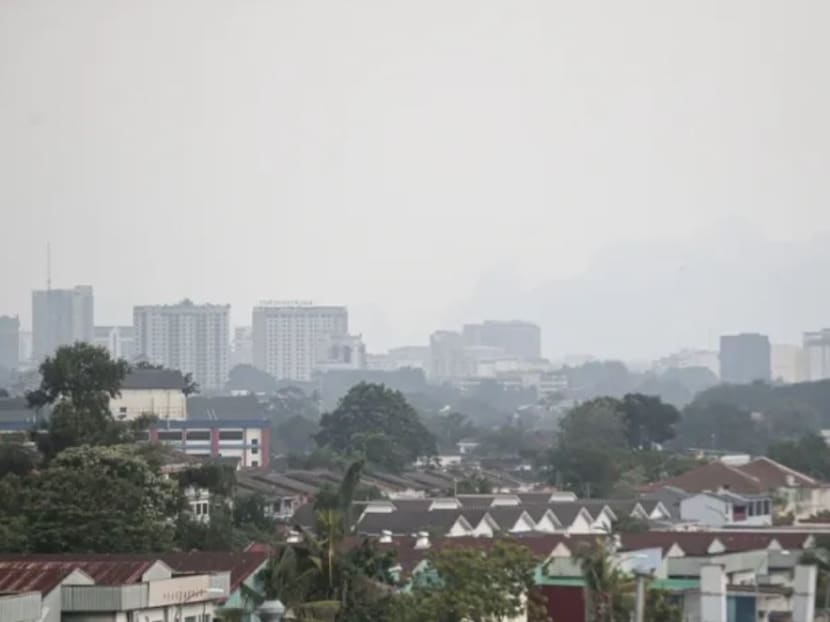M'sian environment minister says diplomatic approach better to tackle transboundary haze problem, new laws alone not enough
KUALA LUMPUR — The transboundary haze issue choking Malaysia cannot be solved by the enactment of laws alone, the country's Minister for Natural Resources, Environment and Climate Change Nik Nazmi Nik Ahmad said in Parliament on Thursday (Oct 12).
KUALA LUMPUR — The transboundary haze issue choking Malaysia cannot be solved by the enactment of laws alone, the country's Minister for Natural Resources, Environment and Climate Change Nik Nazmi Nik Ahmad said in Parliament on Thursday (Oct 12).
He said that the Malaysian government is of the view that diplomacy and negotiations among member states in the Association of Southeast Asian Nations (Asean) is a better way to address the annual air pollution problem.
“Regarding the transboundary haze involving open burning in Sumatera and Kalimantan, for now the government is taking a diplomatic approach and is of the view that negotiation is the better way for us to deal with this issue.
“Transboundary haze pollution cannot be solved by the enactment of laws alone, nor by us pointing fingers.
“We have to admit that apart from our own country, Indonesia has improved its approach in dealing with plantation burning and peat lands in the past two years, including issuing presidential decree, something different from their previous course of action,” Mr Nik Nazmi said in the Dewan Rakyat — the lower house of Malaysia's bicameral Parliament.
He was responding to Perikatan Nasional’s Idris Ahmad who asked if there are any existing laws on the matter, or if there would be actions taken against Malaysia’s neighbours regarding the incidents of open burning in Sumatera — reportedly one of the causes of the transboundary haze in South-east Asia.
Mr Nik Nazmi said there are no specific laws that exist now, adding that there are also constraints that prevent Malaysia from introducing one.
“Among the constraints preventing the enactment of a transboundary law is... it needs the support of location maps, coordinates, information of land owners and companies operating in opening burning areas.
“So if there is no willingness from the neighboring countries, because this involves their sovereignty, then we will not be able to enforce the legislation,” he said.
Singapore has a transboundary haze pollution law passed in 2014 that criminalises any act or omission that causes or contributes to haze pollution in Singapore.
Such acts include lighting fires outdoors for or in connection with any farming operation or forestry operation and leaving unattended such fires.
The law empowers individuals and organisations in Singapore to sue those who are responsible for the pollution and who cause them to suffer economic loss.
Mr Nik Nazmi said the Malaysian government is looking to use diplomatic channels, technical cooperation and scientific research under the Asean Agreement on Transboundary Pollution (AATHP) to offer its firefighting services to Malaysia’s neighbours.
The AATHP has been in place since 2002, with Malaysia being one of the first member states to ratify it
“But we also need to look at the domestic level, how the government can improve the transboundary haze incident communication plan for the benefit of the people and to ensure that the haze situation does not drag on,” Mr Nik Nazmi said.
He added that both the Ministry of Natural Resources, Environment and Climate Change and the Foreign Ministry had sent a diplomatic note about the haze situation in Malaysia to Jakarta on Oct 6, and offered to work together to put out the fires in Indonesia.
He stressed that the government will not defend any Malaysian plantation companies that are caught practising open burning in Indonesia.
Last Thursday, Puchong Member of Parliament Yeo Bee Yin raised the need for Malaysia to enact a transboundary haze law that will hold Malaysian companies or individuals accountable for causing haze from open burning.
Ms Yeo said no specific law governs the cause of the haze and that greater transparency will serve as a deterrent against Malaysian plantation companies misbehaving in other countries.
In response, Mr Nik Nazmi said that to move forward, Asean member states need to improve the AATHP “because under the existing Asean agreement there is no punitive action that can be taken against companies or countries that cause the transboundary haze”.
“This is one of the constraints we have in the existing framework,” he said.
He said the Canada-United States Air Quality Agreement could serve as a model for Asean.
The Canada-US Air Quality Agreement committed the two north American countries to significantly reduce emissions of pollutants that cause acid rain and contribute to smog.
Canada and the US also agreed to set up an Air Quality Committee to submit a progress report every two years. MALAY MAIL










